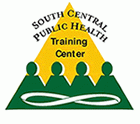
Orientation to the Essentials of Public Health - Advanced Level
Course Description:
The purpose of this course is to focus on the basic principles and core elements of public health and trace its evolution. The course reviews the public health system and its roles and responsibilities. It is also important to understand the challenge to measure health and address the nationally recognized core public health competencies. Lastly, participants are given a glimpse at public health issues that face us today and one that are on the horizon.
Target Audience
Academic Faculty/Staff, Federal Government Employees, State Government Employees, Local Government Employees, Non-Government Employees and Students
Learning Objectives
Module 1 Part 1
- Recognize the difficulty in defining health
- Explain the various definitions of health
- Develop your own definition of health based on your own work priorities
Module 1 Part 2
- Describe population-based measurements of health
- Recognize tools for health promotion and behavior change are available
- Discuss future goals for the nation
- Identify different definitions of health - including physical, mental, and social well-being
Module 1 Part 3
- Identify the domains of health determinants
- List and critically evaluate examples of health determinants in each domain
Module 1 Part 4
- Explain public health
- Argue the pros and cons of public health as a profession
- Describe components and images of public health
Module 1 Part 5
- Discuss the evolution of public health
- Describe the actions of historical heroes in public health
- Discuss public health's achievements during the 20th century
Module 1 Part 6
- Identify the three core functions for public health work
- Translate the core functions into public health practice
- Apply the core functions of public health to your own work
Module 1 Part 7
- Discuss the unique features (core values) of public health
- Critically evaluate the interaction of these unique features
Module 1 Part 8
- Identify public health’s 10 essential services
- Discuss the practical implications of the essential services
- Compare your own work with the essential services that form the framework of public health
Module 2
- Differentiate and compare local, state and federal public health roles and responsibilities
- Identify funding sources and how they are appropriated via the three levels
Module 3 Part 1
- Explain how assessment fits in as a public health core function
- Describe ways to measure health status and disease rates in population
- Name the importance for monitoring trends in diseases
- Identify ways to find subpopulations at elevated risk
- Determine modifiable antecedents to disease
Module 3 Part 2
- List methods of assessment in assessing the health of a population
- Explain how to analyze, interpret and disseminate surveillance data
- Explain how vital statistics are used in assessment and the purpose of using special studies
- List questions and measures that are useful when evaluating public health programs
- Name both federal and state sources of data for overall health assessment
Module 4
- Compare and contrast the ethical bases of public health and medical care
- Explain similarities and differences between law and ethics
- Define the philosophical and religious bases of ethics
- Explain the ethical foundations of public health and their impact on target constituencies
Instructors:
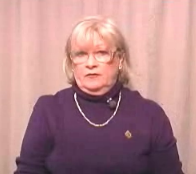
Carolyn C. Johnson, Ph.D., N.C.C., L.P.C.
After obtaining a business degree from Soule College, New Orleans, and extensive experience in the business arena, Dr. Johnson received an undergraduate magna cum laude degree in Psychology from the University of New Orleans in 1982, a Master of Science in Clinical Psychology from San Diego State University in 1985, and a Ph.D. in Applied Biopsychology from the University of New Orleans in 1990.
Dr. Johnson has been associated with the Tulane Center for Cardiovascular Health since 1986. In her association with the Center, she has been an investigator and coordinator for the Health Ahead/Heart Smart program (1984-87), an investigator with the Bogalusa Heart Study (1986-98), Co-Principal Investigator and Project Director for the national Child and Adolescent Trial for Cardiovascular Health (CATCH)(1987-present), and Co-Principal Investigator for the Gimme 5: A Fresh Nutrition Concept for Students program, a 5-a-day NCI-funded dietary intervention for high school students (1993-97). Dr. Johnson developed and coordinated a clinical program for reduction of cardiovascular risk factors for members of high-risk families, the Heart Smart Family Health Promotion Program and assisted with applying program principles to families at Ft. Polk, LA.
Dr. Johnson is currently Principal Investigator of a high school smoking prevention program, the Acadiana Coalition of Teens against Tobacco (ACTT) (2000-05), and a school-based teen pregnancy prevention program in Vermilion Parish, LA (1997-2002). She is a Co-Investigator in the national Trial of Activity for Adolescent Girls (TAAG) (2001-07). She is also Director of Community Outreach for the Tulane-Xavier National Center of Excellence in Women's Health.
Dr. Johnson's area of specialty is behavioral medicine. Her program efforts have been in the lifestyle and psychosocial areas, as well as administration. She is a nationally certified counselor (NCC) and a licensed professional counselor (LPC) in the state of Louisiana. Prior to coming to Tulane, Dr. Johnson did clinical behavioral psychotherapy and worksite wellness and smoking cessation programs. Currently, she teaches human sexual behavior, behavioral psychology theory, and introduction to public health policy and practice.
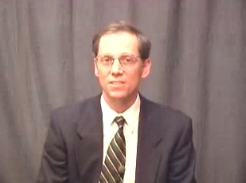
Thomas Farley, MD MPH
My background is in pediatrics, epidemiology, and control of infectious diseases. I have worked on a child health program in Haiti, in infectious disease epidemiology for the Centers for Disease Control and Prevention, and in prevention of vaccine-preventable diseases, tuberculosis, STDs, and HIV at the Louisiana Office of Public Health. In recent years I have evaluated interventions to control bacterial STDs and HIV.
My work in prevention of STDs/HIV led me toward population-based interventions to address the underlying causes of high-risk sexual behavior. Because these underlying causes influence other diseases and injuries as well, I moved from infectious disease control at the health department to the Department of Community Health Sciences at Tulane. I am interested in developing, implementing, and evaluating population-based interventions for a range of health problems, particularly interventions that act on our social and physical environment.
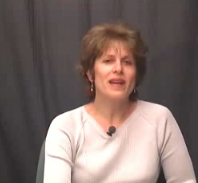
Joan Wightkin, DrPH
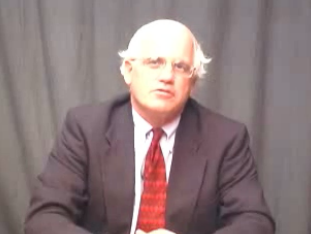
Richard Culbertson, PhD
Available Credit
- 4.00 Participation/CETulane Professional and Continuing Education (PaCE) awards 4.00 hour(s) of credit for completing Orientation to the Essentials of Public Health - Advanced Level
Price
Required Hardware/software
System Settings
This course is designed to work most effectively if your computer and internet connection meet certain minimal requirements. This course can be accessed using a Windows 10 PC or a Mac with High Sierra1, Mojave, or Catalina. Pop-up blockers should be disabled when viewing the course. Internet Explorer 11 (for Windows 10), or the current version of Google Chrome, Mozilla Firefox, or Apple Safari (for Windows 10 and or Mac) is required. Many of our courses require Java and JavaScript enabled.
Links to External Websites
Links to websites outside this course will open in a new window or tab. Some browsers may minimize the course window. If this occurs, maximize the course window to return to the course.
Adobe Acrobat Reader (for desktops and laptops)
Adobe Acrobat Reader is required to access some documents in this course. If you need to download a free copy of Acrobat Reader, click here.
Internet Connection Speed
A minimum download speed of 1.5 Mbps is recommended for an optimal experience, which is commonly the speed associated with a basic DSL or a cellular/satellite connection. A faster connection, such as cable or fiber service, with further enhance your online experience. A Wi-Fi connection is generally acceptable, but it is dependent upon one of the two services mentioned above. You can check your internet connection speed at http://www.speedtest.net/.

 Facebook
Facebook X
X LinkedIn
LinkedIn Forward
Forward